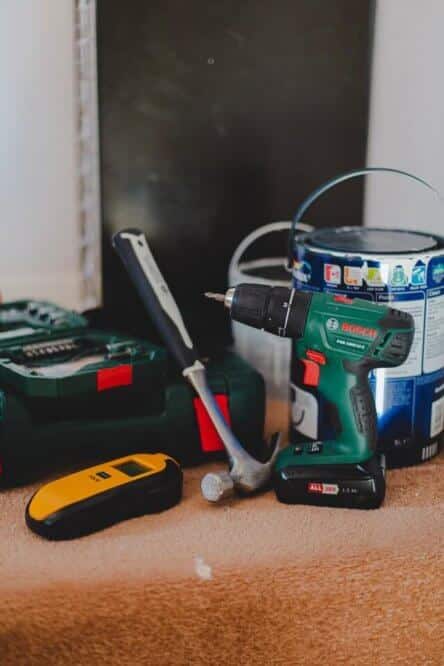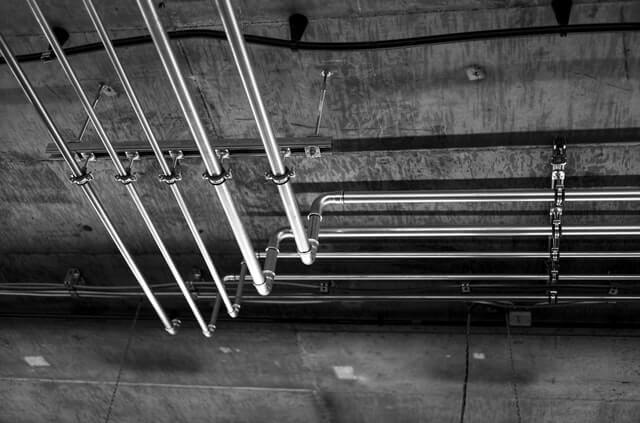You find out the house has one of those sump pumps. So, should you avoid house with sump pump? Does it mean the basement floods frequently? Keep on reading to find out!
Should you avoid house with sump pump? – Short Answer
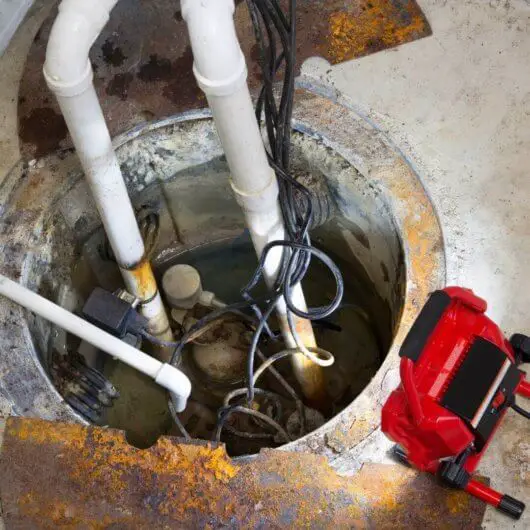
The answer is yes and no, depending on where you live.
If the house is located in a dry climate, the presence of a sump pump could be a bad sign. A sump pump indicates that the particular home you are looking at has a drainage problem.
Are you looking for houses in an area where all places are prone to flooding? A sump pump is a good thing in this case. If your basement gets flooded, you will be using the sump pump to suck out the water. If all houses in the area have the same problem, a sump pump becomes a must-have.
What is a sump pump?
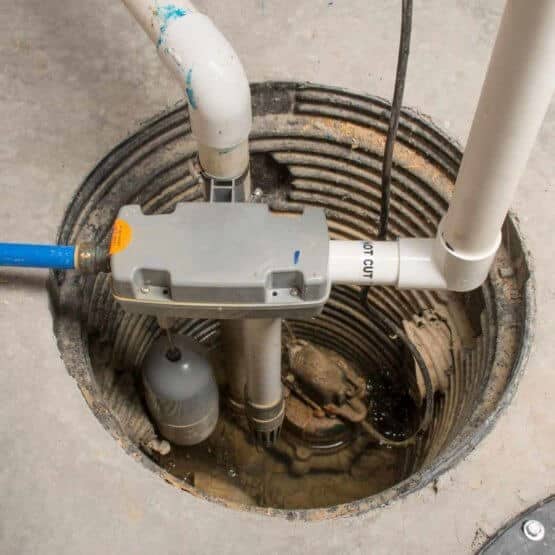
A sump pump is a device consisting of a motor and a pump. This appliance discharges excess water from the sump pit to a designated area.
The sump pump starts functioning automatically when its valves sense pressure or escalating water levels. When the water level is too high, the pump removes water and sends it away from your property through a discharge line.
Sump pumps send excess water to areas such as a dry well, a creek, or a drain. The important thing is water to go where it will not return to your home.
There are two types of sump pumps:
- Submersible sump pumps
Submersible sump pumps are pumps designed to be installed inside the sump pit. They require wider sump pits but have the advantage of ensuring a reduced noise level.
You can introduce multiple submersible sump pumps into a pit. Also, you can cover the sump pit with a lid and convert your basement to a dry, usable space. Other advantages of a submersible sump pump are resisting overheating failures, greater power, and higher quality.
- Pedestal sump pumps
Unlike submersible pumps, pedestal sump pumps sit on the floor in the basement or on the crawlspace floor. As a result, they are easier to access and maintain and are more affordable than their submersible counterparts. Another advantage of the pedestal sump pumps is their longer life span, as they do not need to run constantly.
Do all houses have sump pumps?

Short answer: no!
The necessity for a sump pump depends on where the location of the house. For example, having a sump pump is a good idea if you live in a city prone to heavy rains. We also recommend using a sump pump when you live in low areas, such as the bottom of a hill.
Moreover, a house with a basement should generally have a sump pump. Estimations suggest that more than 60% of homes in America have some moisture in the basement or crawl space. [2]
It’s not uncommon for homeowners to invest in a backup sump pump, just in case.
The second one can take over when the primary sump pump when is overwhelmed or becomes defective.
But why would a house have three sump pumps? More than two sump pumps are necessary when the basement has multiple rooms. Another situation requiring multiple sump pumps is when drainage is terrible in your area.
What are the benefits of having a sump pump?
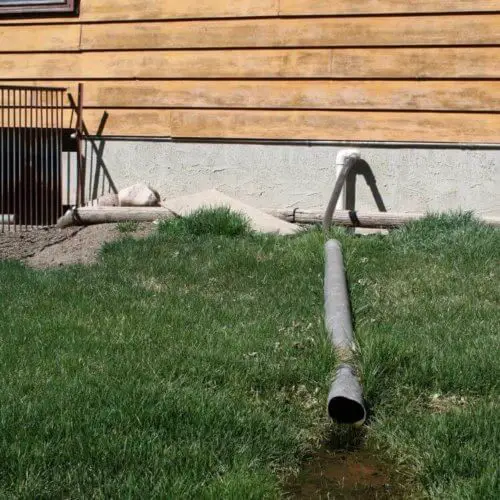
Let’s suppose you are looking for houses in an area with a high level of precipitation. A home with a sump pump could be more expensive. Is it worth spending money on this facility?
We think having a sump pump is a good idea, for the following reasons:
- Increasing property value
If you ever plan to sell a house in a floodable area, having a sump pump can make a huge difference.
- Reducing fire risk
Floods and fire seem like opposite concepts. However, flooding is a leading cause of electrical fires. Water building up in the basement can cause short circuits in appliances, which will be damaged or even cause a fire.
- Preventing water damage
Torrential rain could cause even a foot of flooding in your basement. The water will destroy any valuable item you have in the basement. Even if the basement is empty, removing the water without a pump will be difficult. As a result, mold and mildew will develop, and water could infiltrate the foundation.
But should every basement have a sump pump? Not necessarily.
If the house is in a dry climate, flooding due to natural causes is unlikely. However, we recommend installing a sump pump if you have a basement. A small investment will protect you from accidents such as a water pipe bursting.
How much does it cost to run a sump pump?

Many homeowners avoid sump pumps fearing their running and maintenance costs.
Making a decision depends on multiple factors. Therefore, we advise you to assess the risk of flooding and its potential damages and compare it to sump pump costs.
If, in the long-term, running a sump pump costs more than handling water damage, ditch the pump.
Do you fear frequent flooding in your home? The cost of repairing water damage could be higher than using a sump pump.
Your home insurance may not cover it. In this case, a sump pump represents a good investment as it helps you avoid expensive repairs.
But let’s see how much running a sump pump costs.
Different models of sump pump use different amounts of power. The larger the motor of the pump, the more electricity it consumes.
An average sump pump uses around 10 kWh of power per month. A small pump like ¼ or 1/3 HP will cost $10 to $20 per month to operate. Larger 1 HP pumps, on the other hand, can cost $30 to $40 per month to run. Again, costs can increase during wet spring months
Considering these, some homeowners prefer two smaller sump pumps instead of one. They run one pump constantly and plug the second one in only when necessary. This strategy can be more cost-effective than running one large sump pump all the time.
What about the routine maintenance of a sump pump?

Running costs are not the only ones to consider when owning a sump pump. Just like any other device, it will need maintenance and possibly repairs. Here are the main maintenance tasks you will have to complete regularly:
- Checking the power supply
We recommend using the sump pump on an independent circuit. In addition, you can install a surge protector to protect the pump against accidental shock.
- Checking for level
Vibration can cause the sump pump to shift out of place. A regular visual inspection can help you get the pump back level.
- Running a test
Does the sump pump start automatically when it should? Run a test by filling the sump basin with water. If the pressure sensor works, the sump will immediately activate.
- Cleaning debris from the basin
Remove the sump pump from the basin to inspect the bottom of the pit. Clean debris that could be sucked in by the pump and cause it to malfunction.
- Inspecting discharge pipes
Check discharge pipes joints for leaks. Also, look at the discharge pipe’s vent to ensure it is free of debris.
- Cleaning the impeller
The small filter in the sump pump can quickly become clogged. Symptoms include the pump suddenly not working anymore or making whining noises.
Will a sump pump raise or lower the value of a property?
Are houses with sump pumps bad? Mostly no.
A sump pump is nice to have or a must-have. In areas prone to flooding, sump pumps are a must and will increase property value.
Is the house situated in a dry area? A sump pump indicates there could be a problem with that particular property. In this case, a sump pump could lower the value of a home.
Alternatives to sump pumps
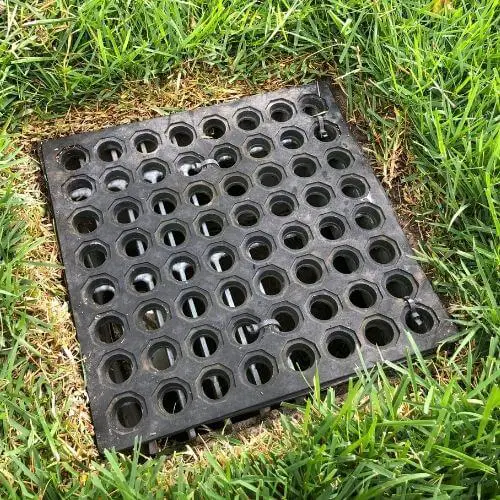
Do all houses have sump pumps? No, because some of them don’t need one. And even those houses with a basement may not have a sump pump and use an alternative instead.
Alternatives to sump pumps include:
- French drains
These are systems that passively drain water away from your home. Unfortunately, they may not prevent water from entering your basement and minimize the amount of water instead.
- Installing gutters
Anyone who installs sump pumps can tell you that flooding prevention is vital. In addition, improving gutters prevents water from entering your basement as water goes away from the roof towards another area.
Regularly cleaning gutters from debris is equally essential to ensure they work properly.
- Grading the ground
Homes should be built with a slight slope in the ground, leading water away from the foundation. Grading around the foundation can be added later, too.
- Portable utility pump
Your basement receives occasional flooding only? In this case, you don’t need a dedicated sump pit and rely on a portable pump. Instead, bring it in when required, and it will get its job done.
Friends advise you to avoid house with sump pump?
Don’t give up on your real estate plans yet. There are multiple factors to consider when buying a home.
In most cases, a sump pump comes in very handy, and having one is positive.

Michael Davis is a heating & plumbing expert who currently works as independent contractor in SC. He also writes for Plumbertip.
For almost 10 years he worked on various plumbing tasks across South Carolina.
